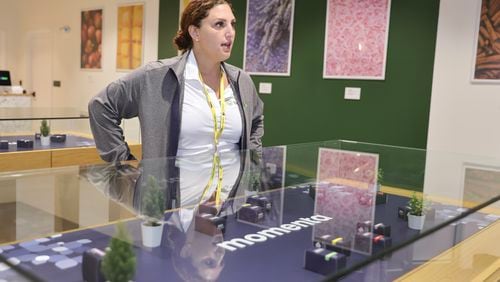In a high school class this week, my son's teacher allowed students to thrash out whether there should be one last graded assignment and, if so, should it be a test or Socratic seminar.
A few students opposed both ideas; they didn’t want additional work when they still faced 44 hours of studying and testing. (The students tallied up the remaining Georgia Milestones, SLOs and finals, estimating two to three hours of studying per exam, said my son, who voted for the test option. The class went with the seminar.)
I was surprised to learn how much testing remains in some high schools, considering all the Advanced Placement, International Baccalaureate and classroom tests students already took. But my concern here isn’t whether too much testing goes on in schools. (There are duplicative tests that could be eliminated.) Rather, I have been mulling the conditions under which schools have to give these tests — amid a frenzy of end-of-the-year events, often parent driven.
Many of us set our oven to 350 degrees in early May to bake muffins for the teacher appreciation breakfast and keep it hot until the last batch of brownies comes out for the final-day-of-school party.
Schools are caught between two colliding trends: The first is fanfare for even the mundane; the Wall Street Journal once described it as “ceremony inflation, making nearly every life passage from preschool graduation to post-graduate exams the focal point of festivities.”
The second trend is the rise of tests that carry real consequences for students and schools. To prevent high school students from blowing off state end-of-course tests, scores now count for 20 percent of final grades in Georgia.
But, at the same time we’ve made tests a pivotal factor in student grades, teacher evaluations and college admissions, we’ve crammed the testing season with concerts, parties, banquets and performances. Today, for example, students at my local high school went from Milestones exams to a spirit rally to a powder puff football game — despite the fact many of them have state tests Thursday.
When South Korean high school students sit for their all-important college admissions test, the government grounds planes or reroutes them as not to disturb testing. Police clear roads to escort latecomers to their tests, and the months leading up to test are spent in review and practice.
While I would not recommend the over-stressed South Korean model, Georgia reflects the opposite extreme. Student athletes statewide had to skip AP and IB exams because championship games were scheduled during testing days. In some cases, students gave up the honor of earning a prestigious IB diploma and college credits because the IB tests they had to miss for the triple jump can't be rescheduled.
In talking to educators from other countries, they express both admiration and doubts about all the other “stuff” American schools have embraced, from proms and sports teams to driver’s ed and Broadway-style musicals. If families in their countries want those enriching experiences for their offspring, they provide them, not the schools.
I recently talked to a French education researcher who said the American model appeals to her because all children can access these extras, not just affluent kids. But there’s a downside.
All of these extras now are expected, and some parents value them as much, if not more, than the academics. I suspect a school that advised parents to plan fewer parties and recognition ceremonies would be condemned as drill-and-kill and mirthless.
Put to a vote, those parents would probably say, "Keep the cupcakes coming."







